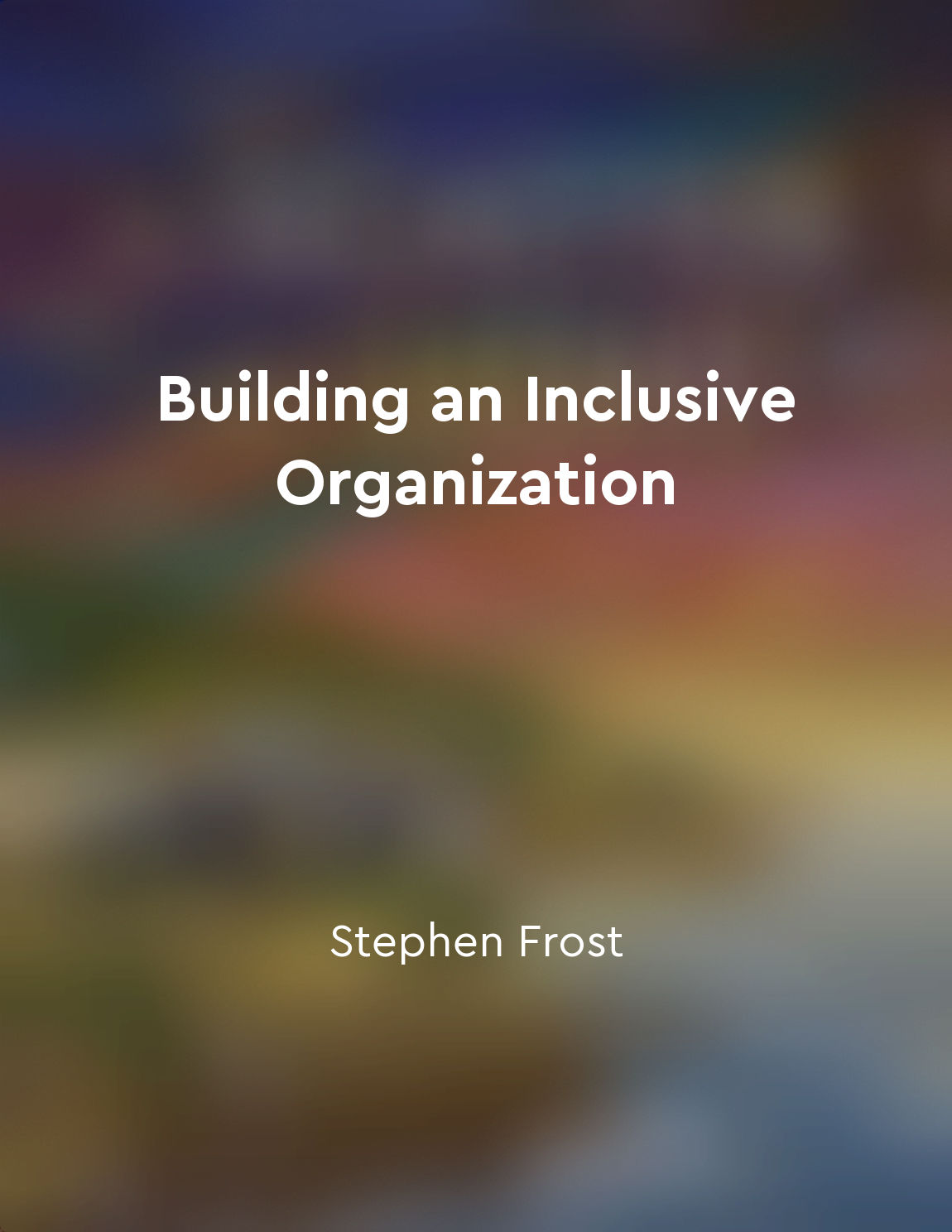Audio available in app
Organizational justice is crucial for employee retention from "summary" of Social Psychology and Organizations by David De Cremer,Rolf van Dick,J. Keith Murnighan
Organizational justice plays a critical role in shaping employees' attitudes and behaviors within a work setting. When employees perceive that they are being treated fairly and with respect by their organization, they are more likely to feel a sense of trust and commitment towards their employer. This sense of fairness can enhance employees' overall job satisfaction and increase their motivation to remain with the organization. Employees who believe that they are being treated unjustly are likely to feel resentful and disengaged, leading to higher turnover rates. In contrast, organizations that prioritize fairness in their policies and practices are more likely to retain their employees in the long run. A fair and just organizational culture can create a positive work environment where employees feel valued and respected, which can contribute to their overall well-being and job satisfaction. Organizational justice encompasses several dimensions, including distributive justice, procedural justice, and interactional justice. Distributive justice refers to the perceived fairness of outcomes, such as pay and promotions. Procedural justice relates to the fairness of the processes used to make decisions, while interactional justice pertains to the quality of interpersonal treatment and communication within the organization. By addressing these various dimensions of organizational justice, employers can foster a sense of trust and loyalty among their employees. When employees believe that their organization is fair and transparent in its decision-making processes, they are more likely to feel a sense of psychological safety and job security. This, in turn, can lead to higher levels of employee engagement and commitment, ultimately contributing to lower turnover rates and higher employee retention.- Organizational justice is a crucial factor in shaping employees' perceptions and behaviors in the workplace. By promoting fairness and transparency in their policies and practices, organizations can create a positive work environment that fosters trust, loyalty, and commitment among employees. This, in turn, can lead to higher levels of job satisfaction and lower turnover rates, ultimately benefiting both employees and employers alike.
Similar Posts

Racism is pervasive in society
Racism is not just a few bad apples. It isn't just a few individuals with hateful beliefs. Racism is a system that has been bui...

Entrepreneurial success is not predetermined by birth
Contrary to popular belief, the path to entrepreneurial success is not predetermined by one's birth. Many people mistakenly ass...
Nonverbal cues also convey messages
Nonverbal cues play a crucial role in communication within the workplace. These cues include facial expressions, body language,...
Entrepreneurship is a popular career choice
Entrepreneurship has become a highly sought-after career path in today's world. The allure of being one's own boss, taking risk...
Esteja disposto a aprender com feedbacks recebidos
Feedbacks são ferramentas valiosas para o nosso desenvolvimento pessoal e profissional. Eles nos oferecem insights sobre nossas...
The Dilbert Principle is a survival guide
The Dilbert Principle is a survival guide because it provides a roadmap for navigating the absurdities of the corporate world. ...

The state should be organized in a hierarchical structure
In our ideal state, it is necessary for us to establish a hierarchical structure that reflects the natural order of the world. ...

Challenge systemic barriers to inclusion
To truly create an inclusive organization, it is imperative to identify and address the systemic barriers that may be preventin...

Managers should prioritize employee wellbeing
The wellbeing of employees should be a top priority for managers. When employees feel valued and supported, they are more engag...
Addressing biases and stereotypes in the workplace is critical
Addressing biases and stereotypes in the workplace is critical because they can have a significant impact on individuals' oppor...

